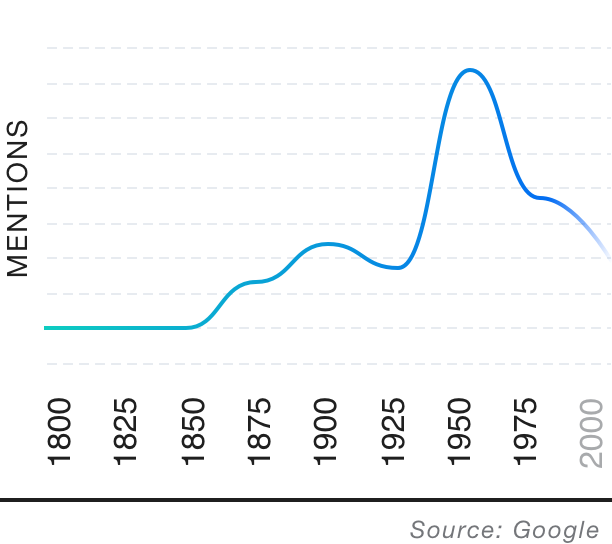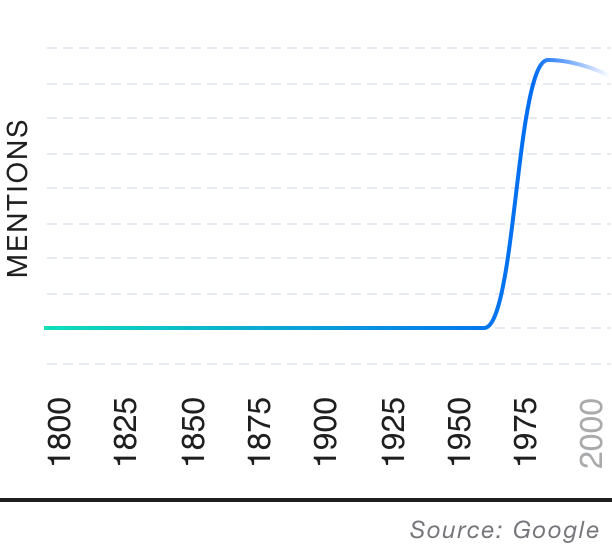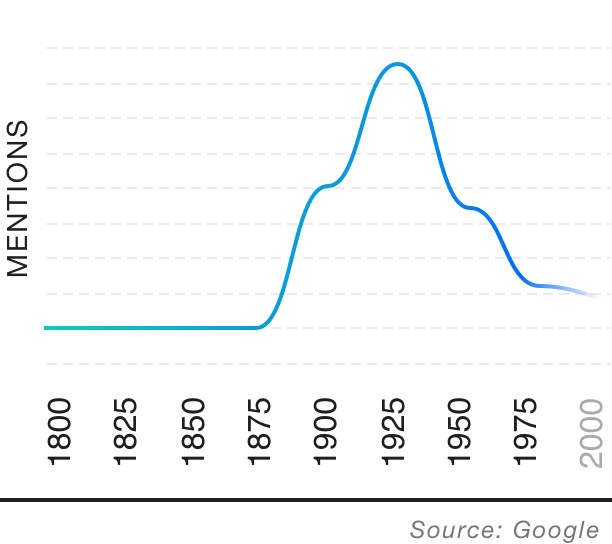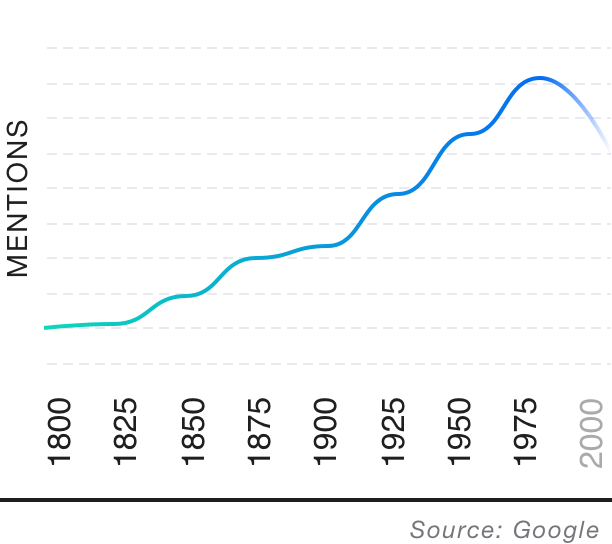Word of the Day
Kaffeeklatsch

[KAH-feh-klach]
Part of speech
Noun
Origin
German, late 19th century
Definition(s)
- An informal social gathering at which coffee is served.
- Talking or gossip at an informal gathering where coffee is served.
Used in a sentence
- The highlight of the neighborhood meetings was the kaffeeklatsch that always followed.
- My grandmother loved nothing more than a good kaffeeklatsch with her friends.
About the Word
Here’s another loanword from German — it translates literally to coffee gossip. Kaffeeklatsch can refer to any social gathering with coffee, or it can describe the actual gossip that tends to occur. Either way, pull up a chair and stay a while.
Did you know?
The “Coffee Talk” sketch on "Saturday Night Live" in the early 1990s is a perfect example of a kaffeeklatsch. Mike Meyers, playing a stereotypical New York woman, was joined by Madonna and Roseanne Barr for coffee and gossip. As Linda Richman, she would sometimes get “all verklempt” and encourage guests to “talk amongst yourselves.”
Popularity Over Time

The Word of the Day can also be found in the following places:
Courtesy of Wordgenius.com and AHDictionary.com
Word of the Day
Iteration
[i-tə-ˈrā-shən]
Part of speech
Noun
Origin
Late Middle English, 1425-75
Definition(s)
- The act or an instance of iterating; repetition.
- A form, adaption, or version of something: the latest iteration of a popular app.
- Mathematics A computational procedure in which a cycle of operations is repeated, often to approximate the desired result more closely.
- Computers
- The process of repeating a set of instructions a specified number of times or until a specific result is achieved.
- One cycle of a set of instructions to be repeated: After ten iterations, the program exited the loop.
Used in a sentence
- In December 2019, Russia deployed its first iteration of hypersonic missiles called the Avangard system.
- The programming students use iterations to print a table of results or working with arrays.
Did you know?
In programming, iteration is often referred to as ‘looping’, because when a program iterates it ‘loops’ to an earlier step. Also, there are two types of iterations in programming. One iteration is called a count-controlled loop which repeats steps a certain number of times and are executed using FOR statements. The other iteration is called a condition-controlled loop which repeats continuously until a condition is met and are executed using WHILE statements.
The Word of the Day can also be found in the following places:
Word of the Day
Extranet
[EKS-trə-net]
Part of speech
Noun
Origin
English, 1990s
Definition(s)
An intranet that can be partially accessed by authorized outside users, enabling businesses to exchange information over the Internet securely.
Used in a sentence
- You'll need to send an email to IT to ask for access to the extranet.
- The staff is able to work remotely as long as they have their computer and access to the company extranet.
About the Word
Here's one of those tech terms that would have sounded like a foreign language 100, even 50, years ago. Combine net, an abbreviation for internet, with extra, meaning outside or beyond, and you have extranet. It's a private network with access given to specific outside users.
Did you know?
You need internet to be able to access the extranet. But if you're logged onto the intranet, then you don't need the extranet. Make sense? Internet is what you need to get online. But your work might have a private intranet with shared files and programs. The extranet is similar, but outside users can also get permission to use and share the information.
Popularity Over Time

The Word of the Day can also be found in the following places:
Courtesy of Wordgenius.com and AHDictionary.com
Word of the Day
Zwieback

[ZWEE-bak]
Part of speech
Noun
Origin
German, mid-19th century
Definition(s)
- A rusk or cracker made by baking a small loaf and then toasting slices until they are dry and crisp.[1]
- A usually sweetened bread first baked as a loaf and later cut into slices and toasted.[2]
Used in a sentence
- When I'm sick I always want to eat my mom's tomato soup with a side of zwieback.
- The waiter served a basket of zwieback before dropping off the salads.
About the Word
If you have an upset stomach, or a teething toddler, you probably have zwieback in the pantry. In German, "zwie" means twice and "back" means bake — which is a pretty literal description of this dry toast. Slices of bread are crisped up with a second baking.
Did you know?
In Germany it's "zwieback." In the U.S. you might find it as rusk or melba toast. In French it's "biscotte," and in Italian it's "fette biscottate." Order "prepečenec" in Slovene, and "dvopek" in Croatian.
Popularity Over Time

The Word of the Day can also be found in the following places:
Courtesy of Wordgenius.com and AHDictionary.com
Word of the Day
Eolian or Aeolian
[ē-ˈō-lē-ən]
Part of speech
Adjective
History, Etymology, and First Know Use
Latin Aeolus, Aeolus; 1622
Definition(s)
Relating to, caused by, or carried by the wind.
Used in a sentence
- The park is known for its eolian caves—chambers formed in sandstone cliffs by powerful winds.
- Many of the eolian structures in the west have been shaped by the wind.
Did you know?
When Aeolus blew into town, things really got moving. He was the Greek god of the winds and the king of the floating island of Aeolia. In The Odyssey, Homer claims Aeolus helped Odysseus by giving him a favorable wind. Aeolus also gave English speakers a few terms based on his name, including the adjective eolian (also spelled aeolian), which is often used for wind-sculpted geological features such as caves and dunes, and aeolian harp, an instrument that makes music when the wind blows across its strings.
The Word of the Day can also be found in the following places:
Courtesy of Merriam-Webster.com and AHDictionary.com
Word of the Day
Axiomatic
[ak-see-ə-MAD-ik]
Part of speech
Adjective
Origin
Greek, late 18th century
Definition(s)
- Self-evident or unquestionable.
- (Mathematics) Relating to or containing axioms.
Used in a sentence
- You might think the solution is axiomatic, but I need more evidence.
- he suggestion to extend the deadline was axiomatic, and the vote was unanimous.
About the Word
“We hold these truths to be axiomatic.” Doesn’t have quite the same ring, does it? Axiomatic means self-evident, or so obvious that no evidence is needed. The Founding Fathers found life, liberty, and the pursuit of happiness to be axiomatic, but it still needed to be spelled out in the Declaration of Independence.
Did you know?
We’re not teaching math here, but axiomatic is a helpful word to learn. Much of mathematical theory is built upon axioms. An axiom is a statement that is accepted to be true — a starting point. For example, Euclidean geometry starts with five axioms, and all theorems come from these simple axiomatic rules.
Popularity Over Time

The Word of the Day can also be found in the following places:
Courtesy of Wordgenius.com and AHDictionary.com
















